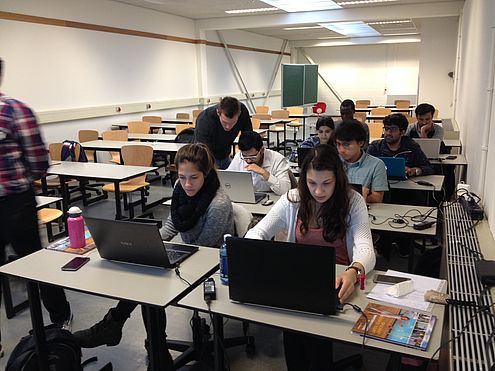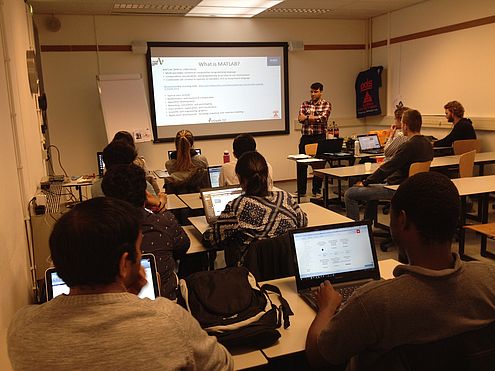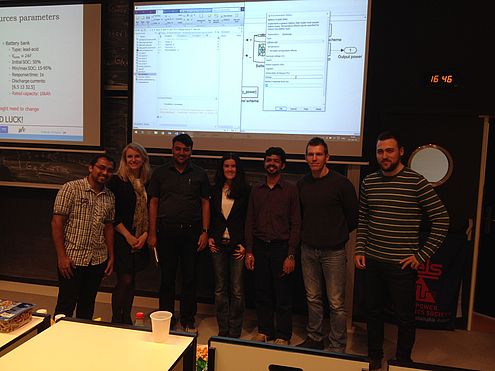Matlab tutorial
Dear colleagues,
The IEEE student board and IEEE PELS/IAS joint-chapter of TU Delft are pleased to announce the first MATLAB Tutorial. Due to the requests and popular calls for such a course, this three day tutorial in intended for MSc students of the ESE and SET departments. The main goal is to introduce current master students with the basic functions and working principles of MATLAB proper and Simulink so that they may gain a practical understanding of this program. This will prove valuable for both students looking to expand their knowledge and for those which current or potential master thesis requires programing or simulations via MATLAB.
This tutorial is free and requires only that the participants register no later than May 27th 2016 via the form below and bring their own laptops with any version of MATLAB (MATLAB can be located and downloaded via BlackBoard). The course will be held on the following days :
Monday, May 30, 1600h - 1900h: room L, EWI
Tuesday, May 31, 1600h - 1900h: room Boole, EWI
Wednesday, June 1, 1600h - 1900h: room Chip, EWI
Refreshments in the form of drinks and snacks will be provided by the organisers. The tutorial will be divided into three segments:
I) Day 1- Basic operations and commands in MATLAB workspace and Simulink.
This segment is intended for student with little or no experience with this software and will thus focus more on the essential functionalities that can be achieved in comparison to other software.
II) Day 2- Power Electronics in Simulink
The primary focus group for this day are student of the DCE&S group of both years. However, this does not imply that other students are excluded since the tutorial will begin with basic examples and expand towards more complex topologies and functionalities.
III) Day 3- Electrical System Design and Basic Control with Simulink
For the final segment of the tutorial student will be introduced to a model electrical system consisting of various renewable energy sources that can be set to operate with under different conditions. The main aim of this tutorial is to demonstrate how the model can be modified in order to account for more details of the system.
Click here for the Flyer for the Matlab tutorial.
>>> UPDATE <<<<
The workshop was a big success and the student board thanks all the students for their active participation. You can see images from the workshop below and download the presentation.


